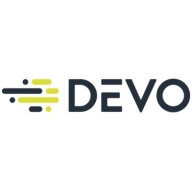

DX Unified Infrastructure Management and Devo cater to comprehensive infrastructure management but exhibit distinct advantages in different areas. Devo appears to have the upper hand in real-time data analytics, while DX stands out for its monitoring capabilities.
Features: DX Unified Infrastructure Management offers comprehensive monitoring capabilities for networks, servers, and applications. It excels in providing extensive monitoring options. Devo provides real-time data analytics allowing for rapid insights. Its analytics capabilities are powerful, making it a preferred choice for users needing advanced data analysis.
Room for Improvement: DX Unified Infrastructure Management could enhance its reporting features and better its integration capabilities to improve user experience. It would benefit from more robust integrations. Devo could simplify the initial configuration process and improve its documentation. A more user-friendly setup process would greatly enhance the user experience.
Ease of Deployment and Customer Service: DX Unified Infrastructure Management is noted for straightforward deployment, though customer support effectiveness receives mixed reviews. Devo's deployment is more complex, but it boasts superior customer service. The ease of setup in DX contrasts with the strong customer support that balances Devo's tougher deployment.
Pricing and ROI: DX Unified Infrastructure Management is considered cost-effective, offering good ROI with manageable setup costs. Devo, though perceived as more expensive, provides significant ROI due to its advanced features. Users find DX more accessible price-wise, whereas Devo justifies its higher cost with superior features and returns.


Devo is the only cloud-native logging and security analytics platform that releases the full potential of all your data to empower bold, confident action when it matters most. Only the Devo platform delivers the powerful combination of real-time visibility, high-performance analytics, scalability, multitenancy, and low TCO crucial for monitoring and securing business operations as enterprises accelerate their shift to the cloud.
DX Unified Infrastructure Management is the only solution that provides an open architecture, full-stack observability and zero-touch configuration for monitoring traditional data center, public cloud, and hybrid infrastructure environments.
Designed to ensure an optimal end-user experience, this solution provides a modern HTML5 operations console that makes it easy and fast for today’s IT teams to implement, use, and scale – leading to faster time to value.
We monitor all AIOps reviews to prevent fraudulent reviews and keep review quality high. We do not post reviews by company employees or direct competitors. We validate each review for authenticity via cross-reference with LinkedIn, and personal follow-up with the reviewer when necessary.